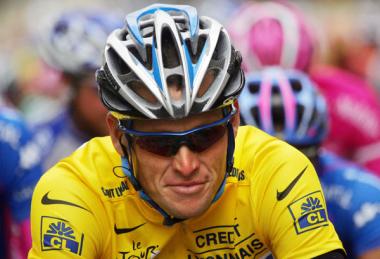As an avid cycling fan, these are my high holy days. Beginning in early July and running through the third week of the month, I'll spend countless hours in front of the television or surfing through a variety of cycling-related Internet sites, following the world's single greatest sporting event, the Tour de France.
My obsession doesn't seem quite as eccentric today as it did in the early '80s, when I first got hooked. Back then, CBS carried a few hours of the race on weekends—coverage that launched the broadcast career of John Tesh (of Entertainment Tonight) and established Phil Liggett, the bantam Briton, as the international voice of bike racing. American Greg LeMond's epic confrontations in 1985 and 1986 with Bernard Hinault, France's last five-time Tour winner, drove up cycling's popularity in the United States and set the stage for the arrival of American superstar Lance Armstrong.
For those of us whose came to cycling in the days of LeMond, the seven consecutive victories recorded by Armstrong from 1999 to 2005 came as a mixed blessing. Seeing Armstrong climbing in the Alps was, to an American cycling fan, surely on par with a Red Sox fan seeing Ted Williams in his prime. But Lance's dominance of the Tour also overshadowed many intriguing aspects of the sport—facets of bike racing that make it far more complicated and compelling than it may appear to the casual observer.
I imagine that many people who took an interest in Armstrong's history-making run of Tour victories will, if they're even paying attention, find this year's race harder to follow without the cocky Texan leading the way. Yet the absence of a dominant leader—a patron, in bikespeak—injects some suspense into the race while focusing more attention on the many races within the race that have always meant a lot to hardcore fans.
Cycling fans hear the question from the uninitiated all the time: how can you derive any pleasure from watching people pedaling their bikes hour after hour? I, for one, love the question: it gives me the chance to explain that, long before television brought the sport into peoples' living rooms, racing fans followed the action mainly in the newspapers and on radio. Town by town, fans lined the streets by the thousands to catch a glimpse of the riders storming by, but they followed the layers of tactics that define bike racing in the papers.
Cycling is ultimately a team sport. At the most basic level, a team may work together to help its leader, someone like Armstrong or LeMond, to win the overall race, with victory determined by the lowest total elapsed time required to complete the multi-stage race.
But there's more at stake than the famed yellow jersey, or "General Classification." There's the points competition, signified by the green jersey. There's the polka-dot jersey for the mountain competition, won by the rider who wins the most points awarded at the summits of the many mountains throughout the race. Riders can win fame and fortune winning individual stage races; others pick up some publicity and some cash racing to fairly obscure check points through each stage.
As much as cyclists work for their respective teams, they are also notoriously opportunistic, seizing on chances to show their individual talents when it doesn't apparently distract from their teams' goals. Such opportunism leads to unlikely alliances between cyclists from different teams—some carefully prearranged, others spontaneous—and also to betrayals, as tactics change to meet changing circumstances.
In the Armstrong days, the pro peloton had a strongman, Lance, who presided over the strongest team in the race, limiting opportunity for most of the other riders. As a result, the outcome of the race, both overall and part by part, became fairly predictable. In this year's race, there is no such predictability. While many cycling commentators will enthuse that what we're seeing is the first Tour free of rampant doping that has been widespread in the sport, I think what we're seeing is the sport being finally free of Lance.
For true fans, that's not a bad thing at all."



